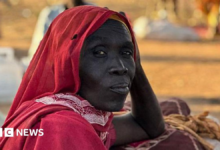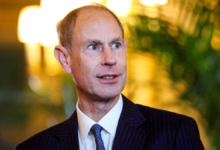Sudan’s PM resigns after mass protests

Sudan’s Prime Minister (PM), Abdalla Hamdok, has resigned after another day of mass protests rocked the capital, Khartoum.
Thousands marched against a recent deal he had done to share power with the army who staged a coup in October.
Chanting “power to the people”, protesters called for a return to full civilian rule. But, military forces again responded with force, leaving two people dead.
Mr Hamdok’s decision to quit leaves the army in full control.
It is another blow to Sudan’s fragile attempts at a transition to democratic rule after a popular uprising led to the overthrow of Sudan’s long-term authoritarian President, Omar al-Bashir, in 2019.
In a televised address, Mr Hamdok said the country was at a “dangerous turning point that threatens its whole survival”.
He said he had tried his best to stop the country from “sliding towards disaster”, but that “despite everything that has been done to reach a consensus… it has not happened”.
Civilian and military leaders had made an uneasy power-sharing agreement after the army staged a coup on October 25, and initially placed Prime Minister Hamdok under house arrest.
The country was just one month away from transition to a civilian head of state when the army seized power.
Mr Hamdok, an economist by training, is widely respected in the international community, having previously worked as an official with the United Nations.
He helped negotiate a deal to forgive some of Sudan’s debts but this involved removing fuel subsidies, leading the prices of many basic goods to rise, and to anti-government protests.
Under the agreement reached with Mr Hamdok in November, the reinstated prime minister was supposed to lead a cabinet of technocrats until elections were held. But, it was unclear how much power the new civilian government would have, and protests against the military resumed, which were often violently suppressed.
Protests continued even after Mr Hamdok had returned to office, with some demonstrators saying that his reinstatement was helping to legitimatise the military takeover.
The United Nations’ special representative in Sudan has expressed regret over Mr Hamdok’s resignation. It puts at risk progress made since the December revolution when Mr Bashir was toppled, Volker Perthes warned. -AFP





